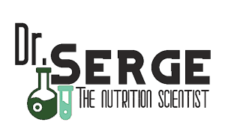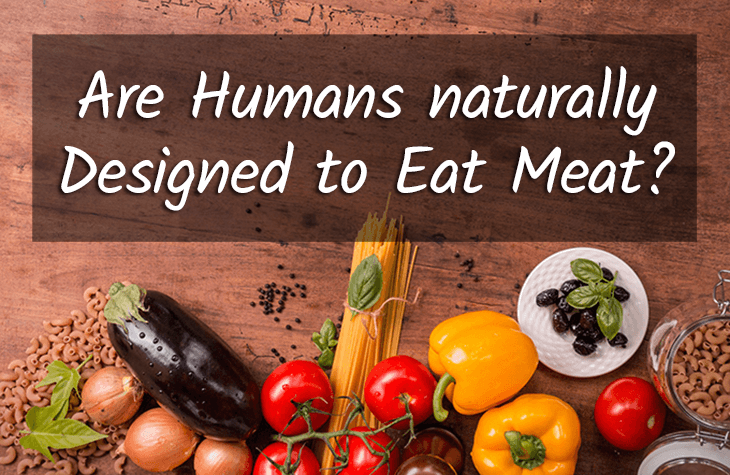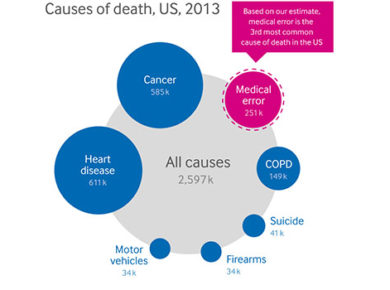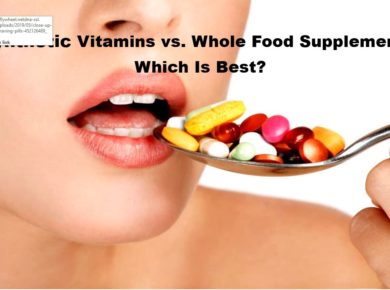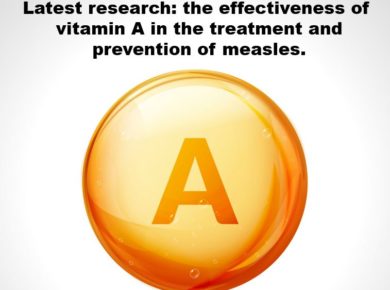First of all, this blog post is about what science says on animal proteins and how the body responds to them.
I will not be addressing the ethical side of this question, as my purpose is to focus on the biochemistry and what the body requires to be healthy.
So, for the sake of science, I will leave all emotions out of this post.
From my experience, many choose a vegetarian diet because they’re under the impression that it’s a healthier choice, from a nutritional perspective.
This is the point that I’d like to address in this article; not the ethical or environmental aspect of it, which will be addressed in future posts.
For the last 60 years or so, the officials have told us that meat, eggs, cheese, and animal fats are bad for us and that we’ll live longer and enjoy superior health if we minimize or avoid them.
We have been brainwashed to believe this as truth and I can guarantee that, if you asked around, you would get this answer the majority of the time.
But is this really true?
There is no doubt that animal products are packed with more nutrients, compared to plant-based products, but let’s take a deeper look.
Plant-based diets emphasize vegetables, which are quite nutrient dense, and fruits, which are somewhat nutrient dense.
They also typically include large amounts of cereal grains (refined and unrefined) and legumes, both of which are low in bioavailable nutrients and high in anti-nutrients like phytate.
On the other side, vegetarian and vegan diets avoid organ meats , other meats, and fish and shellfish, which are among the most nutrient dense foods you can eat.
In other words, vegetarian/vegan diets mostly consume vegetable proteins if not just vegetable proteins.
However, I want to give the followers of vegetarian and vegan diets a warning: you could be missing out on B12, iron, calcium, and other key nutrients for optimal health.
Vegan diets are almost completely devoid of certain nutrients that are crucial for physiological function.
It’s important to note that deficiencies can take months or years to develop, and many are easily missed. The main reason they are missed is often times, when one changes
his diet to follow a vegan diet, they initially feel great because they cut out all of the processed and junk foods.
But overtime, they slowly develop deficiencies and they do not suspect their diet to be responsible.
Several studies have shown that both vegetarians and vegans are prone to deficiencies in:
● Vitamin B12
● Calcium
● Iron
● Zinc
● Long-chain fatty acids EPA and DHA
● Fat-soluble vitamins like A and D
As a matter of fact, some proponents of the vegan diet recommend their followers to take supplements to address these deficiencies.
If you look at the diets that humans have followed over the millennia, all of them incorporated animal proteins.
For example, the work of Dr. Weston Price and the populations of the Blue Zone support this claim.
But let’s take a look at the most common deficiencies that vegetarians and vegans have to deal with.
To begin with, their diets don’t provide enough vitamin B12. Therefore, B12
deficiency is especially common in vegetarians and vegans.
To properly evaluate B12 status, total serum vitamin B12 isn’t accurate at all. It can actually give you a false sense of security.
A better marker for vitamin B12 is holotranscobalamin II, the biologically active fragment, which should be measured along with total homocysteine and methylmalonic acid, both of which are usually decreased in the later stages of vitamin B12 deficiency.
The most recent studies, using more sensitive techniques for detecting B12 deficiency, have found that up to 77 percent of vegetarians and 92 percent of vegans are B12 deficient, compared to just 11 percent of omnivores.
Vitamin B12 works together with folate in the synthesis of DNA and red blood cells.
It’s also involved in the production of the myelin sheath around the nerves and the conduction of nerve impulses.
B12 deficiency can cause numerous symptoms, such as anemia, fatigue, lethargy, weakness, memory loss, neurological and psychiatric problems, among others.
Proponents of these diets believe that there are vegetable sources of B12 like seaweed, fermented soy, spirulina, and nutritional yeast.
And THIS is where the confusion arises.
These plant foods do not contain B12. They contain B12 analogs, called cobamides, which are compounds that block the intake of—and increase the need for—true B12.
Thus, the best sources of B12 are from animal proteins.
Another deficiency, that I see regularly in vegetarians/vegans, is a lack of zinc.
Zinc is important for the immune system, cell growth, and wound healing.
This is another case where bioavailability is important; many plant foods that contain zinc also contain phytate, which inhibits zinc absorption.
Vegetarian diets tend to reduce zinc absorption by about 35 percent, compared with an omnivorous diet.
Thus, even when the diet meets or exceeds the RDA for zinc, deficiency may still occur because of poor absorption.
One study suggested that vegetarians may require up to 50 percent more zinc than omnivores for this reason.
A meta-analysis of 34 studies found that both zinc intakes and serum zinc
concentrations were lower in vegetarians than non-vegetarians.
The main reason being that red meat, fish, and poultry are the best sources for zinc. In addition, they do not contain phytates, which does not block its absorption.
It’s also important to note that, if you are vegan you are most likely calcium deficient.
Calcium is necessary for multiple functions aside from bone health, for example, it enables our blood to clot, our muscles to contract, and our heart to beat.
On paper, calcium intake is similar in vegetarians and omnivores (probably because both eat dairy products). Vegans, however, are often deficient.
Calcium bioavailability from plant foods is affected by their levels of oxalate and phytate, which are inhibitors of calcium absorption and thus decrease the amount of calcium the body can extract from plant foods.
So while leafy greens like spinach and kale have a relatively high calcium content, the calcium is not efficiently absorbed during digestion.
One study suggests that it would take 16 servings of spinach to get the same amount of absorbable calcium as an eight-ounce glass of milk.
That would be 33 cups of baby spinach or around five or six cups of cooked spinach.
There are a few vegetables listed in this paper that have higher levels of bioavailable calcium, but it’s important to note that all of the vegetables tested required multiple servings to achieve the same amount of usable calcium equivalent to one single serving of milk, cheese, or yogurt.
This suggests that trying to meet your daily calcium needs, from plant foods alone, might not be a great strategy. For those who don’t tolerate dairy well, fish with edible bones like sardines, are great sources of calcium along with bone broth.
Lastly, plant-based diets are more deficient in iron.
Vegetarians and omnivores often have similar levels of serum iron, but levels of ferritin—the long-term storage form of iron—are lower in vegetarians than in omnivores.
This is significant, because ferritin depletion is the first stage of iron deficiency.
Moreover, although vegetarians often have similar iron intakes to omnivores on paper, it is more common for vegetarians (and particularly vegans) to be iron deficient.
For example, a study of 75 vegan women in Germany found that 40 percent of them were iron deficient, despite average iron intakes that were above the recommended daily allowance.
Among Australian men, iron intake among vegetarians and vegans was 29 to 49 percent higher than omnivores, but their serum ferritin concentrations were barely half that of omnivores.
Despite similar iron intakes, another study published recently showed vegans and female vegetarians having low ferritin levels.
As with calcium, the bioavailability of the iron in plant foods (nonheme iron) is much lower than in animal foods (heme iron).
Plant-based forms of iron are also inhibited by other commonly consumed substances, such as coffee, tea, dairy products, excess of fiber (phytic acid) and excess of calcium.
This explains why vegetarian diets have been shown to reduce nonheme iron absorption by 70 percent and total iron absorption by 85 percent.
There remain a number of reasons to choose a diet incorporating some animal proteins, but those will be covered in another post.
Since the beginning of human history, not a single population were vegan. All of them consumed some sort of animal proteins.
The reason is simple. They figured out that to be and stay healthy, they had to consume foods that were nutrient dense, like organ meats, wild game, fish, dairy products, etc.
